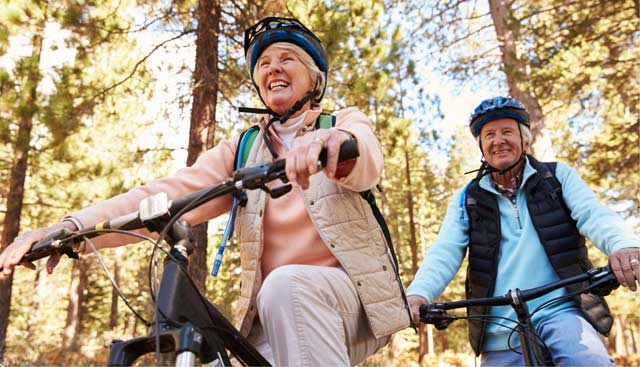
Lifestyle Changes to Reduce Your Cancer Risk
Every day, more is being learned about cancer and its prevention, and this progress serves as a continual source of hope to many people. But, it can sometimes create confusion as well, especially if the results of a new study appear to contradict an idea that was seemingly well established in the not-so-distant past.
While cancer prevention techniques continue to evolve, all experts agree that cancer risk can be directly influenced by certain lifestyle choices. With that in mind, here are several changes that you can make in your daily routine that will have a positive impact on your health:
- Don’t use tobacco products and avoid secondhand smoke – Most people are aware that smoking and chewing tobacco have been conclusively linked to the development of multiple malignancies, and the list is long, including cancers of the lung, mouth, larynx (voice box), esophagus, throat, bladder, kidney, stomach, liver, pancreas, colon, rectum and cervix, as well as acute myeloid leukemia. Less well known, however, are the very real dangers of secondhand smoke, which actually can have the same harmful effects as smoking when inhaled.
- Consume a nutritious, balanced diet – By making healthy food choices and watching what you eat, you can reduce your cancer risk. A good strategy is to base your diet on fruits, vegetables and other plant sources, such as beans and whole grains, and limit your consumption of processed meats and alcoholic beverages.
- Be active in some way every single day – Exercise can help ward off cancer, and it doesn’t have to be formal or boring to do so. The best approach is to find a physical activity that you enjoy and strive to do it for at least 30 minutes each day. With this plan, you’ll achieve significant health benefits, including weight loss (if necessary). Bonus: you’ll likely find that you have more energy and feel better, too.
- Protect yourself from the harmful effects of ultraviolet (UV) light exposure – Skin cancer is one of the most common and preventable types of cancer. Before heading outdoors, be sure to cover up any exposed skin with clothing or a hat and apply a generous amount of sunscreen rated SPF 15 or higher. Seek shade when possible, and expressly avoid being outside during the midday hours, when the UV rays emitted by the sun are most intense. And, never use indoor tanning beds, booths or lamps, which are even more dangerous than the sun.
- See a physician for regular checkups – Screening tests can be performed for several types of cancer, including skin, colon, cervical and breast cancer, which can greatly increase the likelihood of early detection. A physician can help you develop a preventive healthcare plan that is appropriate for you. This is also a good opportunity to ask questions and discuss any health-related concerns you may have.
If you’d like to speak with an oncologist about your own risk of developing cancer, you can come to Moffitt Cancer Center without a referral. We offer several screening and early detection tests for healthy men and women, and we can recommend the best tests for you based on your individual risk profile. To request an appointment, call 1-888-663-3488 or complete our new patient registration form online.
